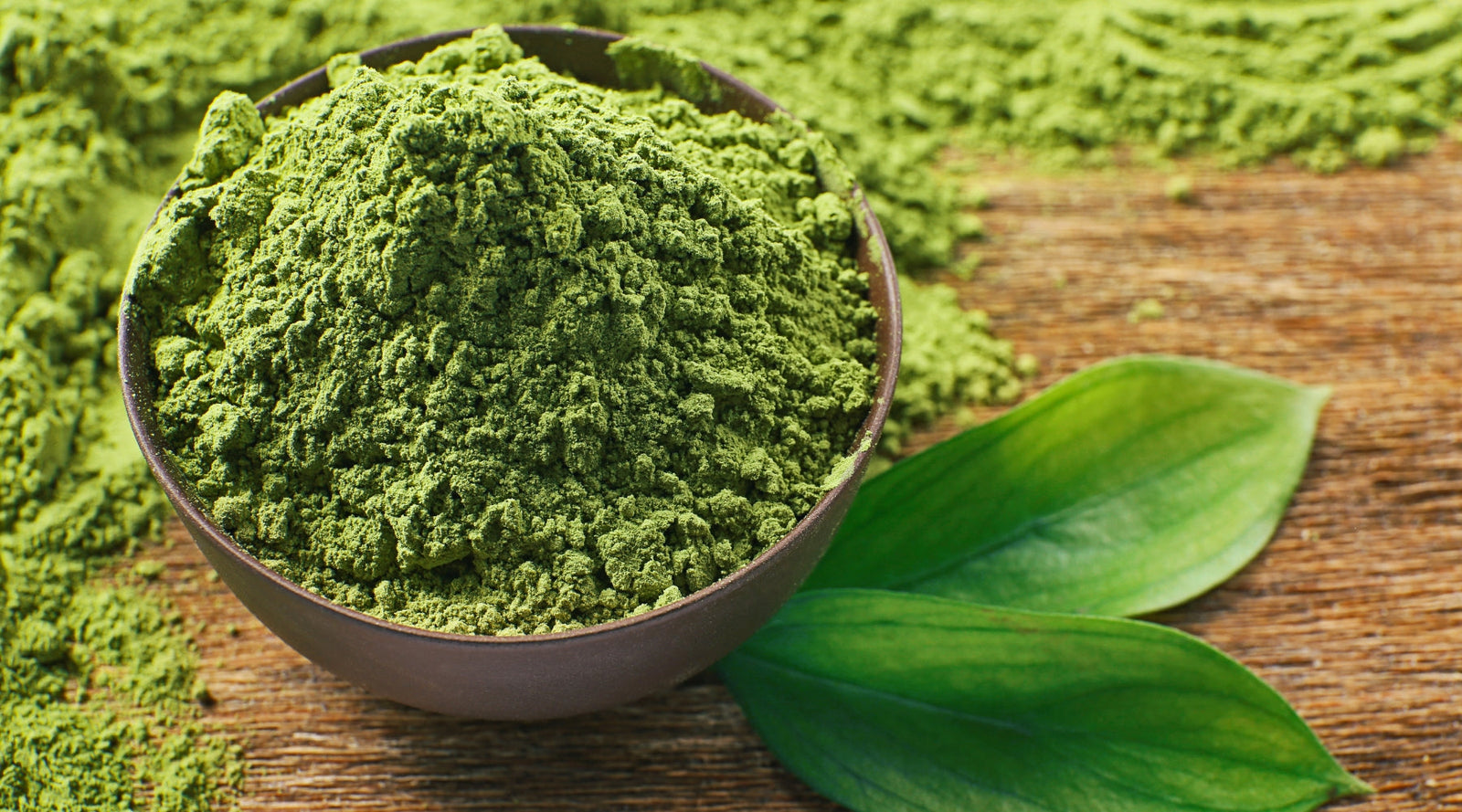What is Matcha?
Matcha is made from green tea leaves that are ground into a fine powder. To make a cup of matcha, you simply whisk the powder with hot water and enjoy the bright green brew. Matcha was originally used in tea ceremonies in Japan and has grown in popularity around the world. It is high in antioxidants and other healthy compounds, making it a winner for both flavor and benefits. The taste is much stronger than regular green tea, and the caffeine content is higher. This makes it a great choice for an energizing drink in the morning.

Caffeine boost: Coffee or Matcha?
The most popular morning beverages contain caffeine, and any long-time coffee drinker can attest to the eventual jitters that become a part of our daily lives after the first 5 or 7… or 10 cups of joe. Unlike coffee or energy drinks though, matcha skips the jitters and provides a long-lasting, even-tempered boost in energy. It helps promote increased brain function while reducing anxiety and stress – without the typical drowsiness that comes along with anything else that may have calming effects. That makes matcha the perfect partner for someone with a desk job, or more obviously, a student! (Or… really anyone)
How much caffeine is in matcha?
Green tea naturally contains caffeine, but there is a surprising amount of nuance between different types. How the tea is grown, processed, and steeped affects the caffeine content. A typical cup of green tea falls in the range of 25-45 mg of caffeine per 8oz cup. That’s less than black tea, which is usually 45-75 mg per 8oz cup. And far less caffeine than coffee, which has between 80-110 mg per 8oz cup. But don’t generalize too quickly, matcha green tea has 60-70 mg of caffeine per 8oz cup! To summarize, matcha has the perfect amount to wake you up without overdoing it.
More caffeine than other green teas
Matcha has the most caffeine of any green tea. The difference is that matcha tea leaves are made into a powder. While most green teas are infused in water and then strained out, matcha powder is mixed into water and consumed entirely. This makes for a thick, green drink and a much higher amount of caffeine. If you need to jump start your morning, matcha is the right choice!
"I have really enjoyed this Matcha, i drink it every morning and it gives me enough energy throughout the day!" -Elaine

Is caffeine bad for you?
Just because there's more caffeine in a cup of matcha than in a cup of your normal green tea does not make this an unhealthy option. The caffeine that is in tea has a much more sustained release than the caffeine that's found in coffee. It does this with this other handy little amino acid called L-Theanine that is plentiful in green teas. Due to the presence of theanine, and since the body processes all pure teas like water, you get the pure hydration effects along with the slower release of caffeine through the body. This avoids the common jolt and crash that you might experience with the caffeine associated with coffee while offering a calm alertness that will stay with you, keeping you at an even energy level for a longer period of time.
How much caffeine is too much?
According to the FDA, "For healthy adults, the FDA has cited 400 milligrams a day—that's about four or five cups of coffee—as an amount not generally associated with dangerous, negative effects". Keep in mind this is a general number and varies based on many factors such as medical conditions, medications, caffeine sensitivities or metabolism rates.
As an adult, we don't advise more than three cups of matcha a day - however five cups are the maximum you should ever consume. Although matcha has less caffeine than coffee, it can keep you feeling alert for longer. This is due to how the caffeine is metabolized.
The caffeine in a cup of matcha combines with the L-theanine in a way that slows the body's absorption of caffeine. This slow release prevents the typical caffeine crash that coffee, soft drinks and energy drinks are known to cause.

Choosing your Matcha:
Many matcha varieties are sold in tins and bags, committing you to a larger quantity. Single serving sachets offers added convenience by allowing your matcha to remain fresh in individually sealed pouches. Now with more flavors of matcha available, the question is - what flavor will you choose?
If you are not sure, we recommend purchasing a matcha variety pack. Here you can try 8 different samples of matcha to find out your favorites. Each matcha sachet holds 3 grams of matcha, allowing you to make a full 16 ounces of tea.







